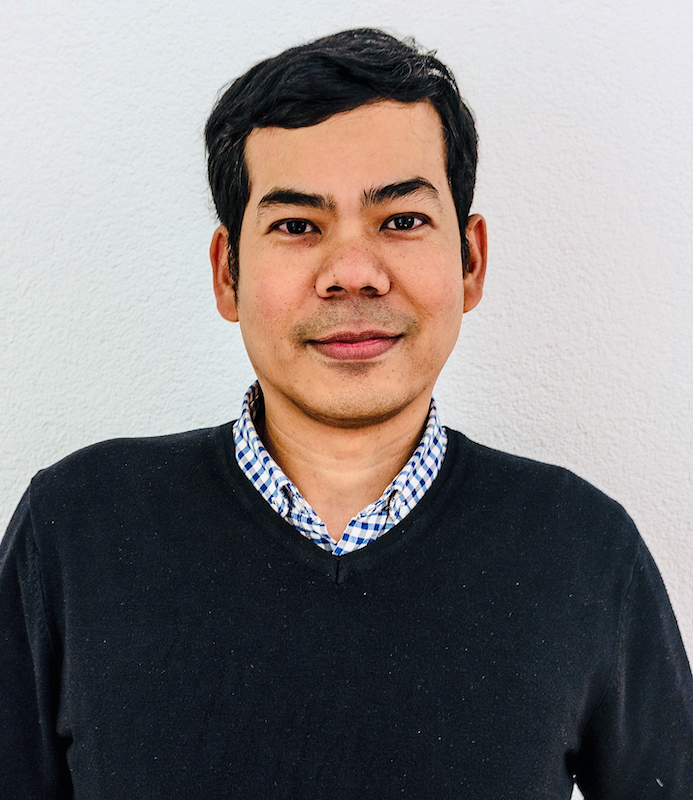[Translate to En:](Kopie 1)
(copy 1)
Clinical bioinformatics
Our group aims to understand cellular heterogeneity and molecular mechanisms in childhood cancer. We focus on developing and applying computational approaches to analyze single-cell multi-omics and spatial information to uncover patterns and extract relevant knowledge underlying disease mechanisms. Our group has recently developed multiple robust analysis approaches and platforms to facilitate single-cell analyses. We also develop methods for deconvolution and classification of bulk DNA methylation. We work closely with experimental collaborators to apply single-cell multi-omics approaches to answer fundamental questions in cancers (e.g., therapy resistance). The group is shaping and focusing more on single-cell genome/epigenome, cell-cell interactions, and alternative splicing, including studying immune cells. We continue working on DNA methylation for precision cancer diagnosis. The overall goal is to better understand disease mechanisms for target discovery, molecular diagnosis and classification and help improve treatment options for children with cancers using cutting-edge single-cell/spatial omics and computational biology.

Spotlight - Group Thongjuea
Four focal points at a glance
1. developments in computer methods and software for single cell analysis.
2. single cell approaches for the study of normal and malignant hematopoiesis.
3. single cell approaches for the study of brain and other solid tumors in children
4. deconvolution and classification of DNA methylation.
Our research areas are in single-cell computational biology and childhood cancer genomics. We apply our developed computational methods to characterize cancer cell heterogeneity by integrating large-scale bulk and single-cell multi-omics and spatial transcriptomics analyses. We work on data science by applying machine learning techniques and statistical analysis to uncover patterns and extract knowledge underlying disease mechanisms. We work on multiple single-cell approaches to study medulloblastoma and other solid tumors in children. These include developing methodologies/platforms for analyzing individual genomes and epigenomes. We build cell-cell interaction networks to understand how cancer cells communicate, particularly with their microenvironment and immune cells. We focus more on integrating genes and alternative splicing information to explore new potential targets. We also work on bulk DNA methylation to develop novel methods for the deconvolution and classification of samples. Our analysis methods and tools developed along the way of our research will help identify molecular signatures and provide a decision support system for diagnosis, prognosis, and biomarker discovery or design of novel targeted therapies for personalized treatment.
- Wen, W. X., A. J. Mead and S. Thongjuea (2023). "MARVEL: an integrated alternative splicing analysis platform for single-cell RNA sequencing data." Nucleic Acids Res.
- Wang, G., W. X. Wen, A. J. Mead, A. Roy, B. Psaila and S. Thongjuea (2022). "Processing single-cell RNA-seq datasets using SingCellaR." STAR Protoc 3(2): 101266.
- Roy, A., G. Wang, D. Iskander, S. O'Byrne, N. Elliott, J. O'Sullivan, G. Buck, E. F. Heuston, W. X. Wen, A. R. Meira, P. Hua, A. Karadimitris, A. J. Mead, D. M. Bodine, I. Roberts, B. Psaila and S. Thongjuea (2021). "Transitions in lineage specification and gene regulatory networks in hematopoietic stem/progenitor cells over human development." Cell Rep 36(11): 109698.
- Wen, W. X., A. J. Mead and S. Thongjuea (2020). "VALERIE: Visual-based inspection of alternative splicing events at single-cell resolution." PLoS Comput Biol 16(9): e1008195.
- Psaila, B., G. Wang, A. Rodriguez-Meira, R. Li, E. F. Heuston, L. Murphy, D. Yee, I. S. Hitchcock, N. Sousos, J. O'Sullivan, S. Anderson, Y. A. Senis, O. K. Weinberg, M. L. Calicchio, N. I. H. I. S. Center, D. Iskander, D. Royston, D. Milojkovic, I. Roberts, D. M. Bodine, S. Thongjuea and A. J. Mead (2020). "Single-Cell Analyses Reveal Megakaryocyte-Biased Hematopoiesis in Myelofibrosis and Identify Mutant Clone-Specific Targets." Mol Cell 78(3): 477-492 e478.
- Rodriguez-Meira, A., G. Buck, S. A. Clark, B. J. Povinelli, V. Alcolea, E. Louka, S. McGowan, A. Hamblin, N. Sousos, N. Barkas, A. Giustacchini, B. Psaila, S. E. W. Jacobsen, S. Thongjuea and A. J. Mead (2019). "Unravelling Intratumoral Heterogeneity through High-Sensitivity Single-Cell Mutational Analysis and Parallel RNA Sequencing." Mol Cell 73(6): 1292-1305 e1298.
- Giustacchini, A., S. Thongjuea, N. Barkas, P. S. Woll, B. J. Povinelli, C. A. G. Booth, P. Sopp, R. Norfo, A. Rodriguez-Meira, N. Ashley, L. Jamieson, P. Vyas, K. Anderson, A. Segerstolpe, H. Qian, U. Olsson-Stromberg, S. Mustjoki, R. Sandberg, S. E. W. Jacobsen and A. J. Mead (2017). "Single-cell transcriptomics uncovers distinct molecular signatures of stem cells in chronic myeloid leukemia." Nat Med 23(6): 692-702.


